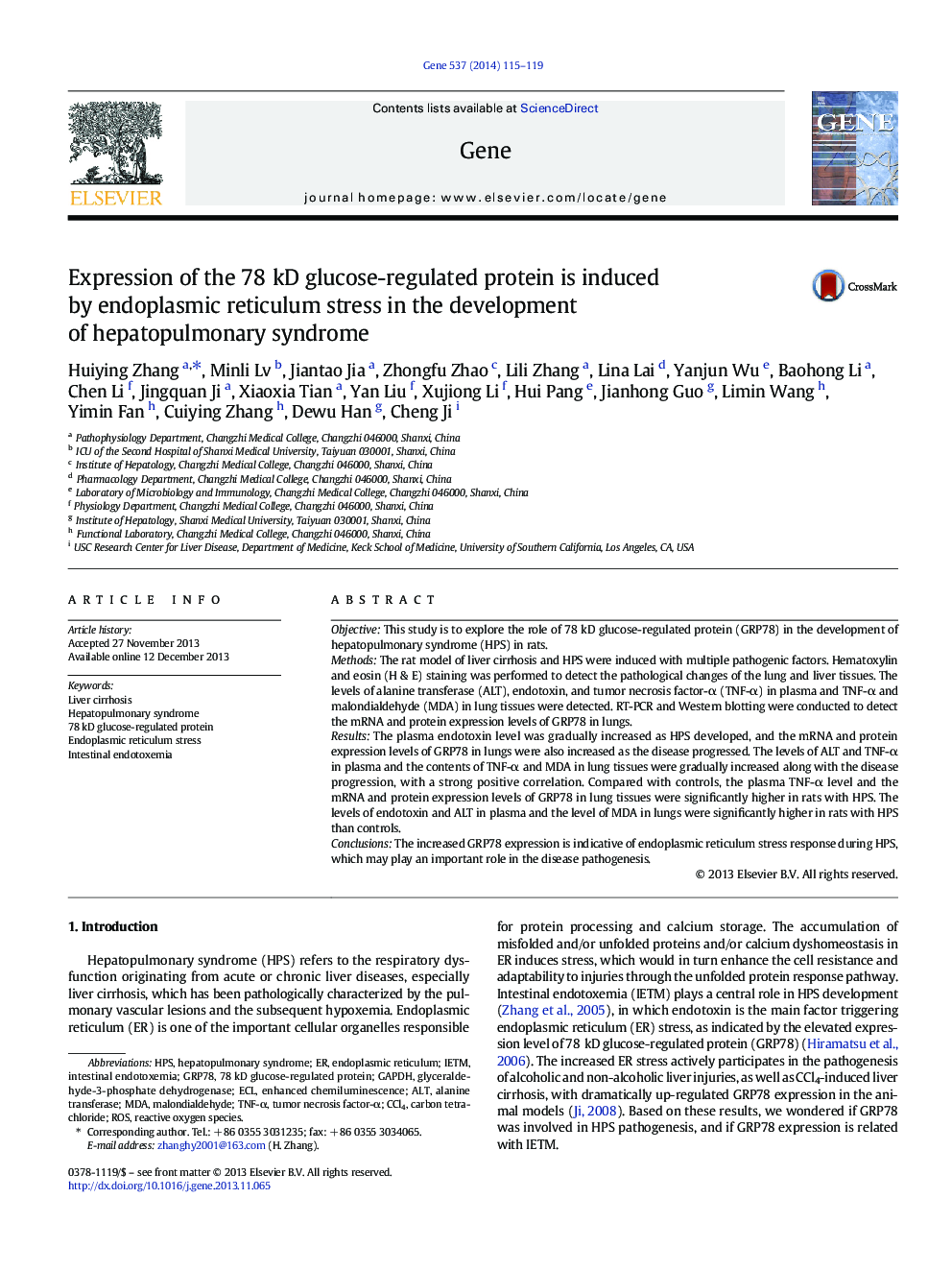| Article ID | Journal | Published Year | Pages | File Type |
|---|---|---|---|---|
| 5906080 | Gene | 2014 | 5 Pages |
â¢Serum levels of endotoxin, ALT and TNF-α were significantly increased in HPS rats.â¢Levels of GRP78 and MDA in lung tissues were significantly increased in HPS rats.â¢Serum ALT and TNF-α levels were correlated with TNF-α and MDA levels in lung tissues.â¢The increased GRP78 expression is indicative of ER stress response during HPS.
ObjectiveThis study is to explore the role of 78 kD glucose-regulated protein (GRP78) in the development of hepatopulmonary syndrome (HPS) in rats.MethodsThe rat model of liver cirrhosis and HPS were induced with multiple pathogenic factors. Hematoxylin and eosin (H & E) staining was performed to detect the pathological changes of the lung and liver tissues. The levels of alanine transferase (ALT), endotoxin, and tumor necrosis factor-α (TNF-α) in plasma and TNF-α and malondialdehyde (MDA) in lung tissues were detected. RT-PCR and Western blotting were conducted to detect the mRNA and protein expression levels of GRP78 in lungs.ResultsThe plasma endotoxin level was gradually increased as HPS developed, and the mRNA and protein expression levels of GRP78 in lungs were also increased as the disease progressed. The levels of ALT and TNF-α in plasma and the contents of TNF-α and MDA in lung tissues were gradually increased along with the disease progression, with a strong positive correlation. Compared with controls, the plasma TNF-α level and the mRNA and protein expression levels of GRP78 in lung tissues were significantly higher in rats with HPS. The levels of endotoxin and ALT in plasma and the level of MDA in lungs were significantly higher in rats with HPS than controls.ConclusionsThe increased GRP78 expression is indicative of endoplasmic reticulum stress response during HPS, which may play an important role in the disease pathogenesis.
